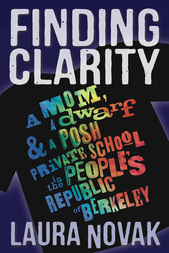
The phrase "the house always wins" came to my mind, but I'm not sure why. On the face of it, this sounds like a step in the right direction for the struggling middle class. But then again, bringing in more out of state students and limiting in state students really rankles me. I say that as the mother of a high school junior who is at this very moment sitting for an AP Bio exam.
The comments raise the 1% - 99% divide issue, which I am sure is a sensitive topic for all public and private colleges and universities. I am only now beginning to wrap my mind around what is right and wrong with higher education financing and costs. I'm wide open to other opinions. What is your collective experience with higher education, if any?

 RSS Feed
RSS Feed



